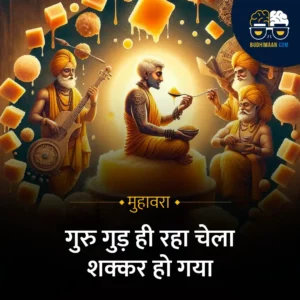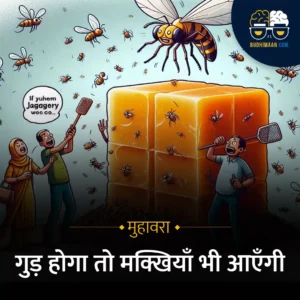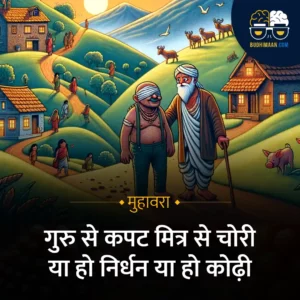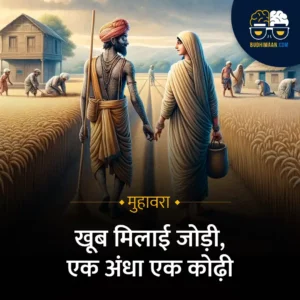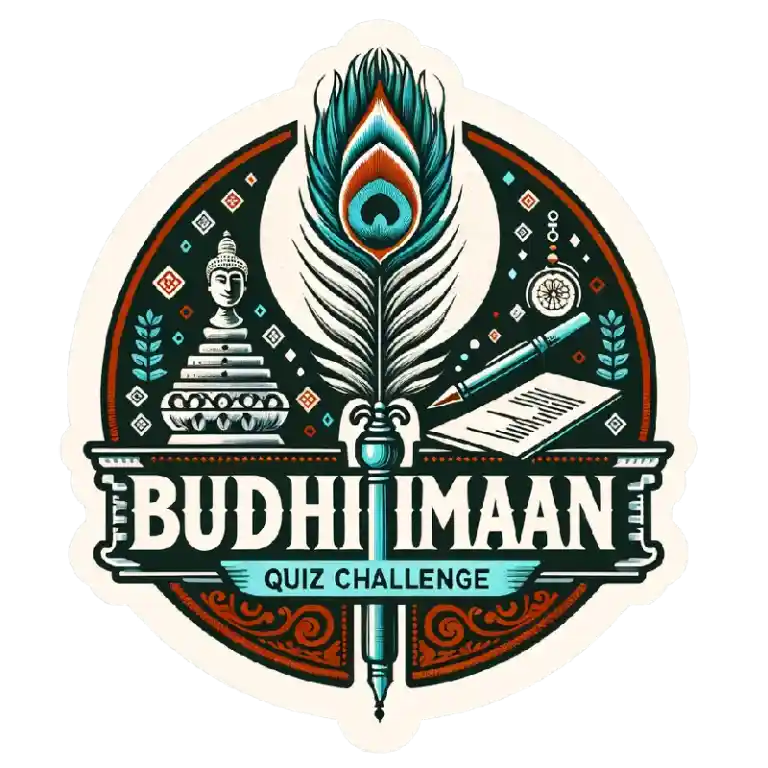अर्थ: “दिन गँवाना” एक प्रचलित हिंदी मुहावरा है, जिसका अर्थ होता है समय बर्बाद कर देना या फायदे का समय खो देना। जब किसी कारणवश किसी कार्य को पूरा नहीं किया जा सके या किसी काम में देरी हो जाए, तो इस मुहावरे का प्रयोग होता है।
उदाहरण: -> राज ने अनवरंत वेब सर्फिंग में अधिक समय बिता दिया और फिर उसे यह अहसास हुआ कि वह पूरा दिन गँवा चुका है।
-> शिवानी को अपनी मित्र के साथ चुगलखोरी में इतना समय गुजार दिया कि उसे अपनी ज़रूरी प्रस्तुति तैयार करने का समय नहीं मिला।
वाक्य में प्रयोग: जब सुमित ने अपने आलस्य के चलते प्रोजेक्ट की समय सीमा चूक दी और अधिकतर समय मनोरंजन में बिता दिया, तो उसे महसूस हुआ कि उसने अपने मूल्यवान दिन गँवा दिया।
विचार: जीवन में समय की अहमियत को समझना चाहिए, क्योंकि एक बार गँवाया हुआ समय वापस नहीं आता। “दिन गँवाना” मुहावरा हमें यह सिखाता है कि हमें अपने समय का सही तरीके से उपयोग करना चाहिए ताकि हमें बाद में पछतावा न हो।
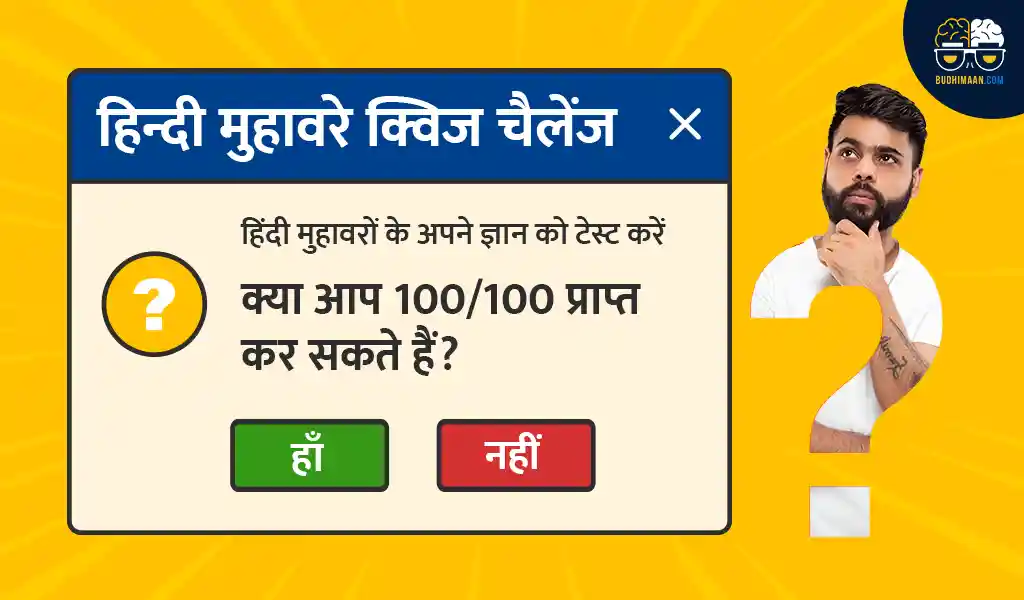
दिन गँवाना मुहावरा पर कहानी:
प्रियंक एक आम लड़का था जिसे वीडियो गेम्स का बहुत शौक था। वह हर दिन अपने दोस्तों के साथ खेलता था, बिना किसी समय सीमा के। एक दिन, उसके स्कूल में एक बड़ी प्रतियोगिता की घोषणा हुई जिसमें सभी विद्यार्थियों को भाग लेना था।
प्रियंक को पता था कि इस प्रतियोगिता में उसे भाग लेना है, लेकिन उसकी आलस्य और वीडियो गेम्स की आदत ने उसे रोक दिया। हर दिन, वह सोचता कि वह कल से तैयारी शुरू करेगा, लेकिन वह कल कभी नहीं आया।
प्रतियोगिता का दिन नजदीक आया, और प्रियंक को अचानक यह अहसास हुआ कि उसने अपने कीमती समय को खेल में गँवा दिया और अब उसके पास प्रतियोगिता के लिए तैयार होने का समय नहीं था।
प्रतियोगिता में, जब उसके साथी अपनी मेहनत और समर्पण का परिणाम देखते थे, प्रियंक खुद को दोषी महसूस करता था। उसे समझ में आ गया कि “दिन गँवाना” का क्या असर होता है।
इस घटना से प्रियंक को जीवन में प्राथमिकताएं सेट करने का महत्व समझ में आया। उसने ठान लिया कि वह अब समय का सही तरीके से उपयोग करेगा और अपने लक्ष्यों की प्राथमिकता देगा।
आशा है कि आपको इस मुहावरे की समझ आ गई होगी और आप इसका सही प्रयोग कर पाएंगे।
Hindi to English Translation of दिन गँवाना – Din gavana Idiom:
Meaning: “Din gavana” is a common Hindi idiom which means to waste time or to lose a beneficial opportunity. This idiom is used when, due to some reason, a task couldn’t be completed on time or there is a delay in a task.
Examples: -> Raj spent too much time aimlessly browsing the web, and then realized he had wasted the entire day.
-> Shivani spent so much time gossiping with her friend that she didn’t get time to prepare for her crucial presentation.
Usage in a sentence: When Sumit missed the project deadline due to his laziness and spent most of his time in entertainment, he felt he had wasted his valuable day.
Thought:
Understanding the importance of time in life is essential because once lost, time never comes back. The idiom “Din gavana” teaches us that we should utilize our time wisely so that we don’t regret it later.
Story of Din gavana in English:
Priyank was an ordinary boy with a great passion for video games. He played every day with his friends, without any time constraints. One day, an announcement of a big competition was made in his school in which all students were to participate.
Priyank knew he had to participate in this competition, but his laziness and video game habit held him back. Every day, he thought he would start preparing from the next day, but that ‘next day’ never came.
As the day of the competition approached, Priyank suddenly realized that he had wasted his precious time on games and now had no time left to prepare for the competition.
During the competition, while his peers were reaping the rewards of their hard work and dedication, Priyank felt guilty. He understood the consequences of “Din gavana.”
This incident made Priyank realize the importance of setting priorities in life. He decided that he would now make proper use of his time and prioritize his goals.
I hope this gives you a clear understanding of the proverb and how to use it correctly
FAQs:
क्या इस मुहावरे का अंग्रेजी में कोई समकक्ष है?
अंग्रेजी में इसका समकक्ष हो सकता है “to waste the day” या “to fritter away time”.
क्या “दिन गँवाना” मुहावरे की उत्पत्ति का कोई विशेष इतिहास है?
इस मुहावरे की उत्पत्ति का कोई विशेष इतिहास नहीं है; यह सामान्य बोलचाल से आया है।
क्या इस मुहावरे का उपयोग आधुनिक हिंदी में प्रचलित है?
हां, यह मुहावरा आधुनिक हिंदी में भी प्रचलित है और अक्सर उपयोग में आता है।
क्या इस मुहावरे का प्रयोग व्यंग्यात्मक रूप में भी हो सकता है?
हां, इसका प्रयोग कभी-कभी व्यंग्यात्मक रूप में भी होता है, जब किसी की आलस्य या निष्क्रियता की ओर इशारा करना हो।
क्या इस मुहावरे का प्रयोग साहित्यिक ग्रंथों में भी मिलता है?
हां, यह मुहावरा हिंदी साहित्य की कई रचनाओं में प्रयोग किया गया है, विशेषकर जहां चरित्रों की आलस्य या निष्क्रियता का वर्णन होता है।
हिंदी मुहावरों की पूरी लिस्ट एक साथ देखने के लिए यहाँ क्लिक करें


